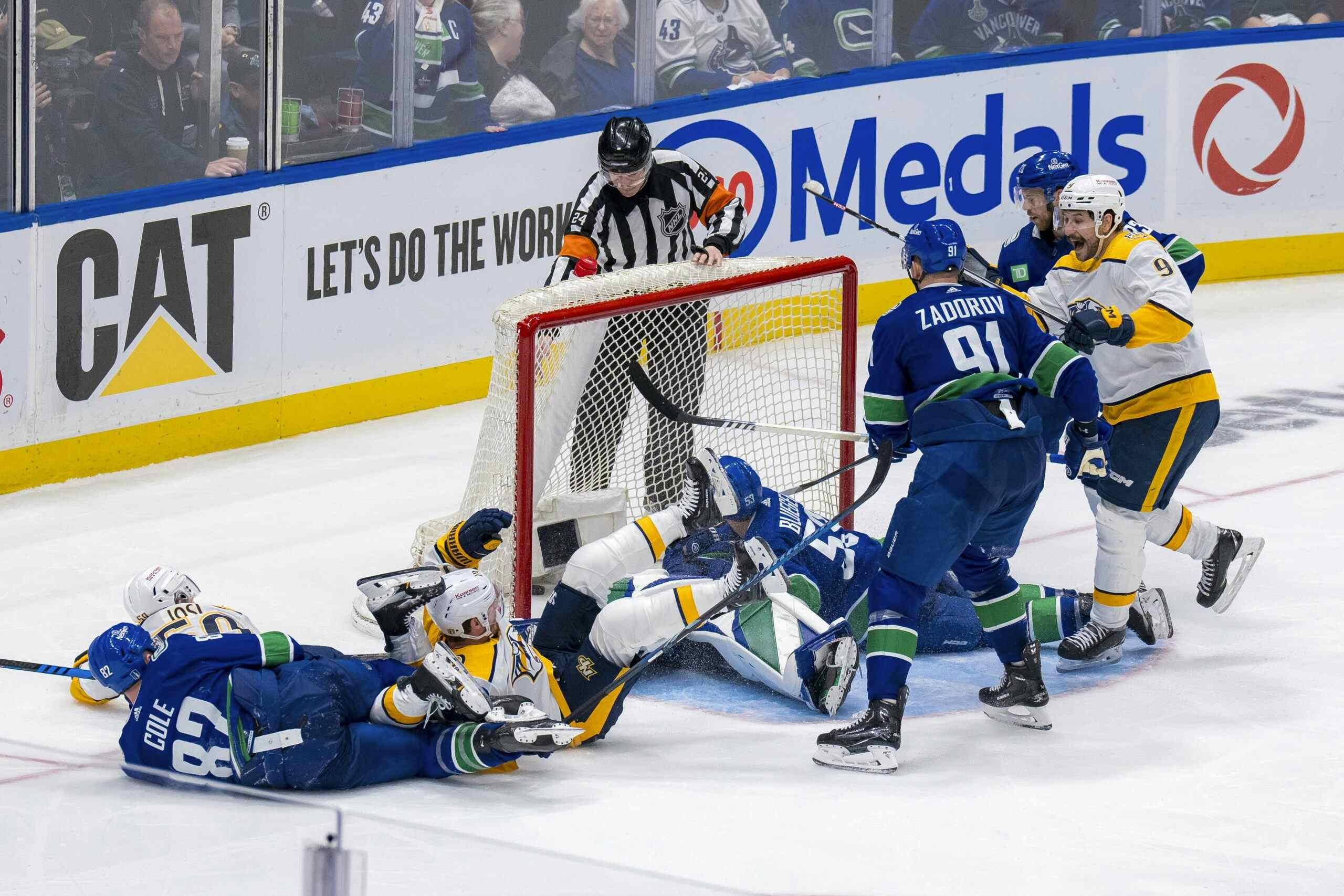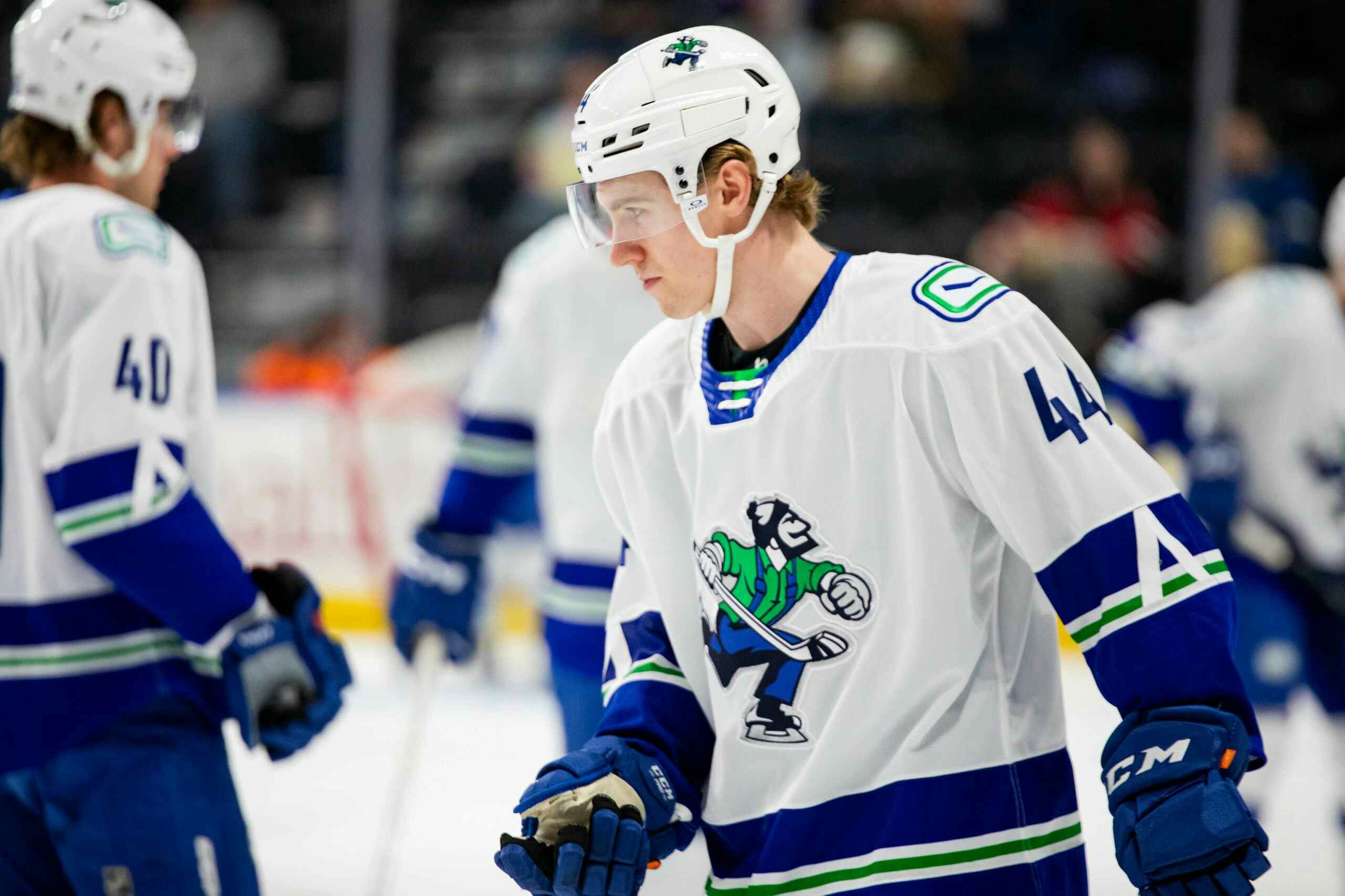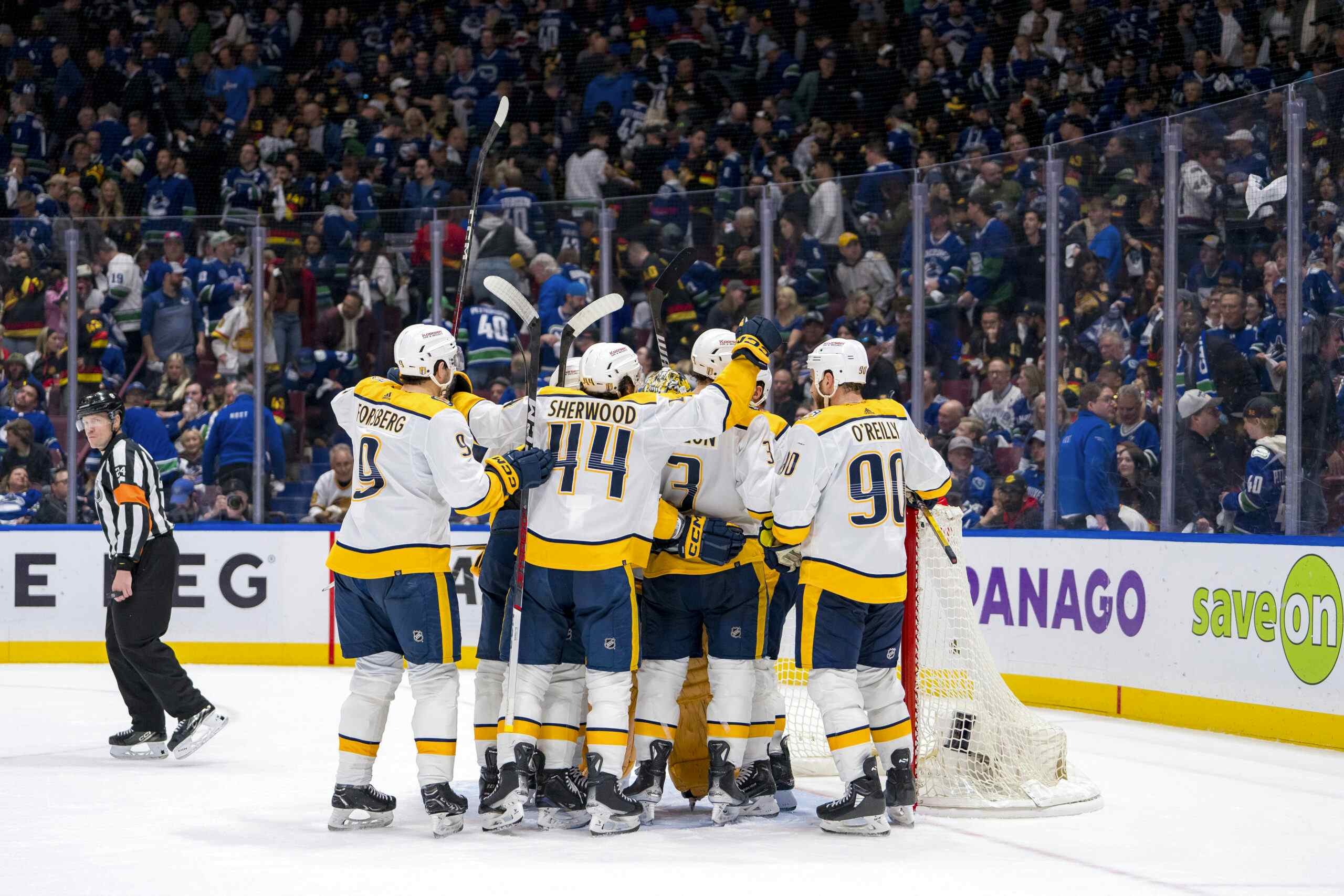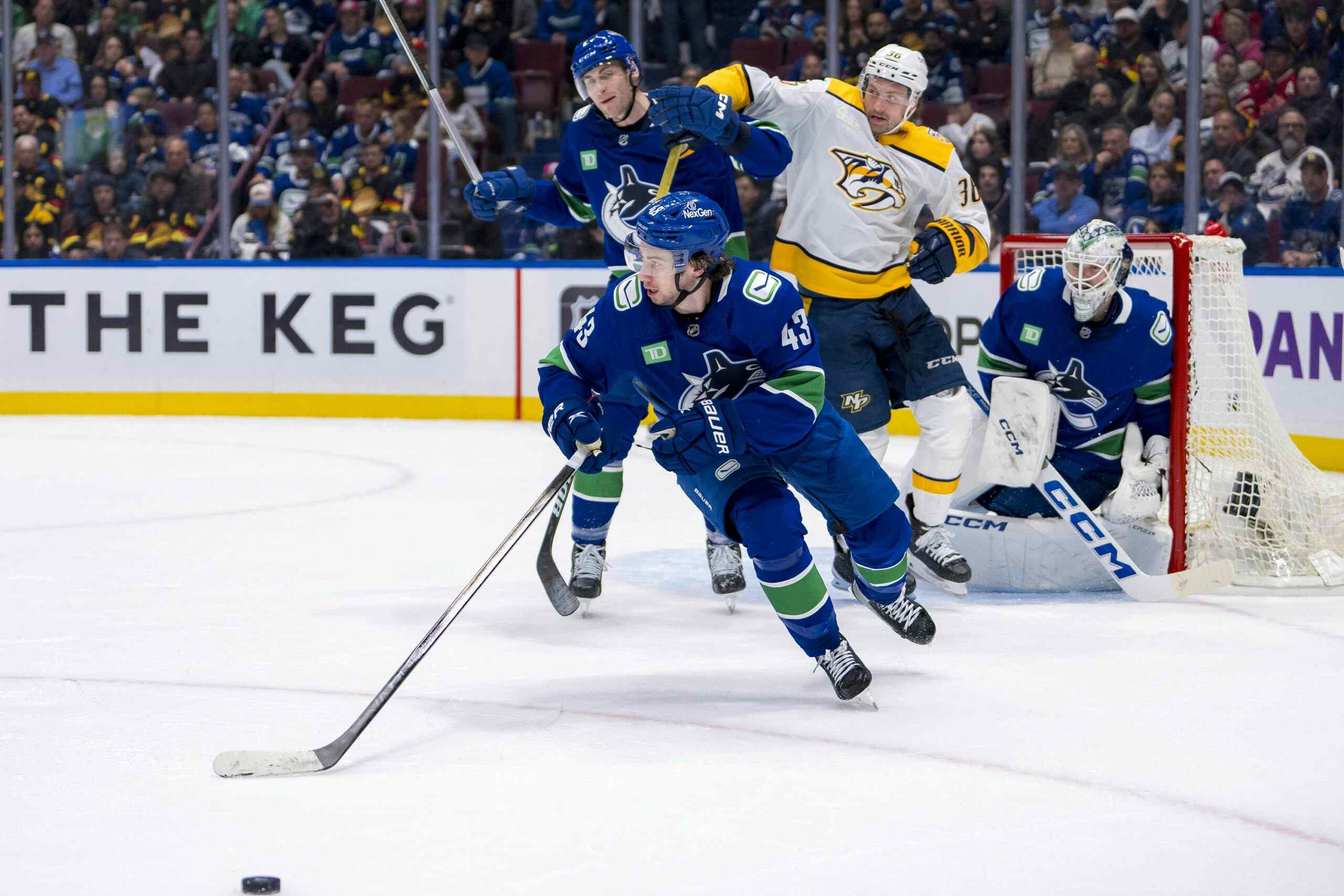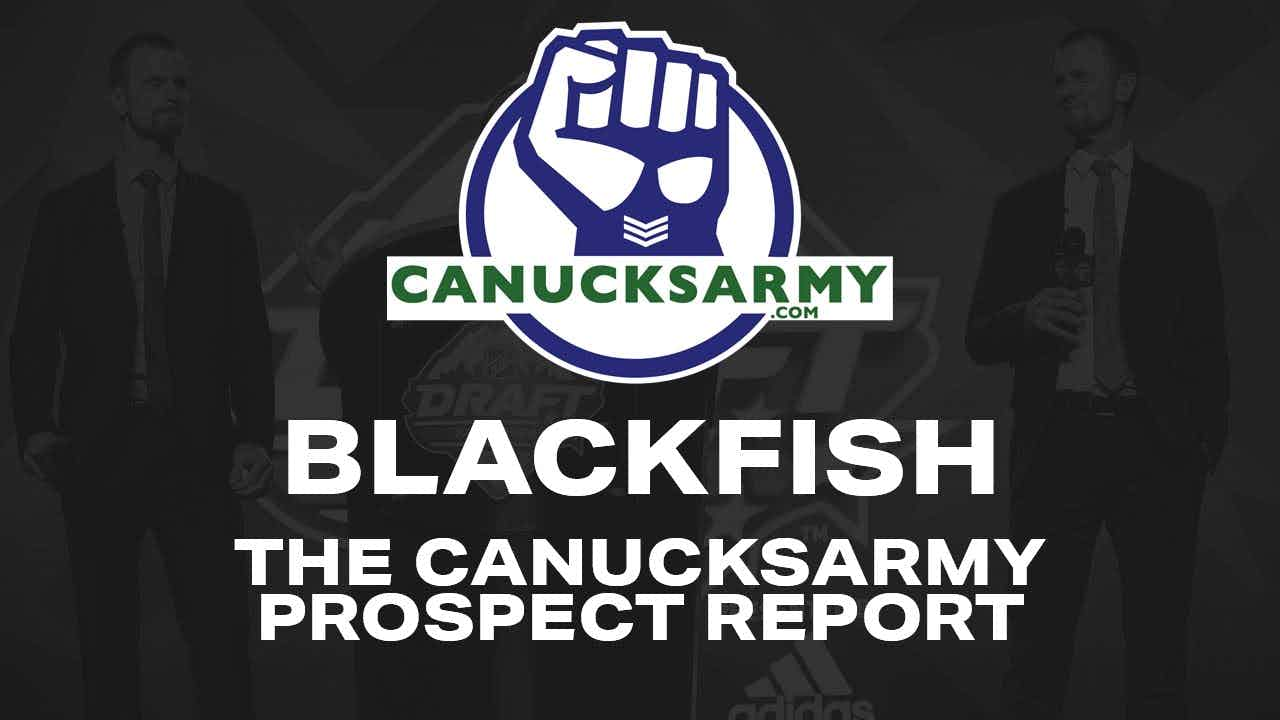Are the Canucks Better Off Without Derek Dorsett?
By J.D. Burke
7 years ago
Anne-Marie Sorvin: USA Today Sports
I like to think of Jim Benning’s first off-season as the Canucks General Manager as his best work to date. We often talk about the difficulties associated with rebuilding through the draft while remaining competitive, but for a summer, at least, Benning straddled that line with deft efficiency.
For the most part, each move aligned with his stated goal to address what he felt were the Canucks most pressing needs. Chief among them was forward depth and in the acquisition of Derek Dorsett, in particular, you get a sense of how the Canucks were going to hit the development and contention birds with a single stone.
Sure, the Canucks surrendered a draft pick (their own third round selection in the 2014 draft) for the privilege, but Dorsett had long been among the league’s best fourth liners — a bizarre, yet noteworthy distinction. Aside from that, Dorsett’s pugilistic nature and leadership qualities add value for a club trying to infuse their lineup with youth on an annual basis.
You can accommodate the latter of those qualities at a cost so long as the player holds up their end of the bargain on the former. That hasn’t been the case, though. And much like the Linden Vey acquisition made in that same summer — just moments after Dorsett’s — we’re getting closer to the point where we might have to acknowledge that a sound process decision hasn’t bore fruit.
And much like Vey before him, we’re at a point where we have to ask ourselves if the Canucks are better off without Dorsett.
There are so many layers to this question, but paramount among them is the fact that Dorsett just isn’t a particularly good player anymore. Whereas he once had a negligible negative, often bordering on positive, impact on his team’s ability to push play, his two-way play has atrophied in Vancouver, with 43% and 46% Corsi For marks in back-to-back seasons.
Now, that may sound bad at first glance, but when one considers the fact that Dorsett’s played roughly a third of his time in Vancouver in trailing situations (the type that tilt the ice considerably in the losing team’s favour) these marks are especially alarming.
It’s not necessarily Dorsett’s fault, but Willie Desjardins is putting him in situations where one would expect him to at the very least hold his own. That his team’s been rag-dolled at even strength with him on the ice in consecutive seasons doesn’t really bode well for a player who’s reputation is built as much on his defensive pedigree as his pugilism.
While you might be quick to brush those shortcomings aside, those are very real concerns that have an impact on the Canucks ability to create a winning environment on a night-to-night basis. Like any forward, you might be willing to take the good with the bad. A more productive forward might offset these deficiencies with gaudy production. Dorsett’s never been a particularly productive player, though, so we shouldn’t just him based on these metrics.
A more fair view would be to take an intuitive look at Dorsett’s fights (as base as it is, I know) to determine whether he’s having some difficult-to-quantify sort of impact on the club’s ability to shift momentum. If you’re of the belief that fights can shift momentum (a belief I’ll let you have for the sake of this article) then, you might find it concerning that Dorsett won exactly two of his 11 fights this season according to www.HockeyFights.com.
Now, aside from the obvious concerns an old school hockey mind might have over the momentum gained and lost in fights, let’s consider for a second that Dorsett has been in 27 fights over the course of his last two seasons. That’s an obscene amount, and honestly a part of me wonders if he should be kept out of the lineup for the sake of his long-term health, even.
When one looks at the entire picture, it paints Dorsett in the light of a player that hinders his team’s ability to control play, can’t chip in offense and is suffering an immense physical toll at no tangible gain for the trouble. Say what you will about leadership and the role Dorsett is playing as a mentor to the younger players on this team, but you have to weigh those qualities against the very real, quantifiable shortcomings that he has on his team on a night-to-night basis.
At that point, one has to wonder if Dorsett’s roster spot weren’t better suited to one of the Canucks’ young players on the fringe of their roster. We’ve explored the possibility of Alexandre Burrows in the press box, but why should the Canucks do that given he has a considerably stronger impact on the Canucks ability to win hockey games? Better still, is the difference between Dorsett and Alexandre Grenier or Brendan Gaunce particularly stark? And if so, is it stark in Dorsett’s favour even?
Dorsett is only 29-years-old, but he’s travelled some hard miles in those 29 years. It’s not surprising that his body isn’t holding up particularly well as he sits on the cusp of 30. That’s part of the reason you don’t give this type of player term. Even a good fourth line player is one spot removed on the totem pole from a replacement level hockey player.
The contract situation isn’t especially favourable for a divorce. There are three long years remaining and each one carries a $2.65-million cap hit. That said, a year after the Canucks sent Chris Higgins to the AHL in the third year of his four-year contract, it’s not like there isn’t some level of precedent here. If the Canucks are serious about winning and getting younger, they’ll make a similar call this season.
It’s not ideal, but depending on the player the Canucks use in his stead, the possibility exists to send Dorsett down and net cap savings. For example, the Canucks would save about $300,000 if they sent Dorsett down and played Grenier in his stead. It sounds petty, but that’s the name of the game as a general manager in the NHL. It’s an efficiency contest. Every dollar saved has value.
I don’t think this is the likely scenario for the Canucks or Dorsett. Frankly, based on everything the Canucks have said since Benning took over, I get the sense they’re every bit as opposed to the idea as Dorsett. If they know what’s good for them, though, that’s a road they’ll, at the very least, consider travelling.
Recent articles from J.D. Burke

